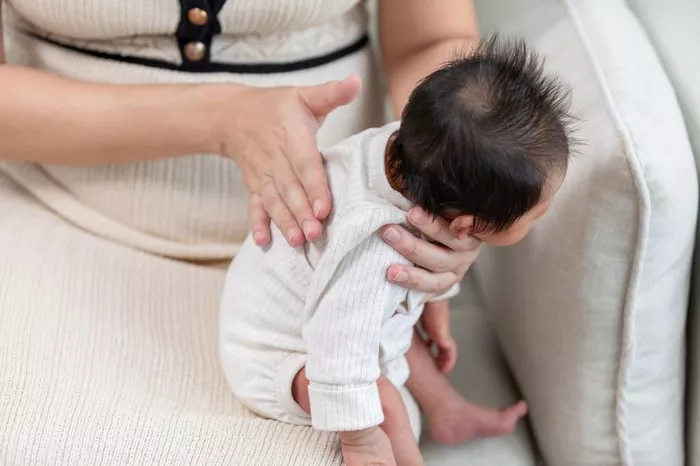Hiccups are common among newborns. They can occur for various reasons and often leave parents concerned. Many wonder if hiccups are harmful for newborns or if they indicate an underlying issue. In this article, we will explore the causes of hiccups in newborns, whether they are harmful, and how parents can manage them.
Understanding Hiccups
Hiccups occur when the diaphragm, a muscle located at the base of the lungs, spasms involuntarily. This sudden contraction is followed by a quick intake of breath, which causes the vocal cords to close and produces the characteristic “hic” sound.
Hiccups can happen to anyone, including newborns. In fact, many infants experience hiccups frequently, sometimes even multiple times a day. Understanding why hiccups happen can help alleviate parental anxiety regarding this common occurrence.
Causes of Hiccups in Newborns
Hiccups in newborns can be caused by several factors. Some of the most common reasons include:
Feeding
One of the primary causes of hiccups in newborns is feeding. When babies eat too quickly, they may swallow air along with their milk. This can lead to increased pressure in the stomach, causing the diaphragm to spasm. Overfeeding can also contribute to this issue, as a full stomach can irritate the diaphragm.
Excitement or Overstimulation
Newborns can become excited or overstimulated by their environment. Loud noises, bright lights, or vigorous play can lead to hiccups. This overstimulation can affect their diaphragm and trigger spasms.
Temperature Changes
Sudden changes in temperature can also lead to hiccups. For instance, moving from a warm environment to a cooler one can shock the system and cause the diaphragm to contract.
Gastroesophageal Reflux
Some newborns experience gastroesophageal reflux (GER), a condition where stomach contents flow back into the esophagus. This can cause irritation and trigger hiccups. Babies with GER may also show other symptoms, such as fussiness or vomiting.
Other Factors
Other potential causes of hiccups in newborns include emotional changes, such as stress or anxiety, and certain medical conditions. However, these are less common and typically require medical attention.
Are Hiccups Harmful for Newborns?
In general, hiccups are not harmful to newborns. They are a normal physiological response and usually resolve on their own. Hiccups rarely indicate a serious health issue. Most of the time, they are simply an annoyance for parents and babies alike.
Frequency and Duration
Hiccups can last from a few seconds to several minutes. In some cases, they may persist for longer periods. If hiccups occur frequently or last for extended periods, it may be worth discussing with a pediatrician. Persistent hiccups could indicate an underlying issue, such as reflux or another gastrointestinal condition.
When to Seek Medical Advice
While hiccups are generally harmless, there are situations where parents should consult a healthcare professional. Parents should seek advice if:
Hiccups last for more than three hours.
Hiccups are accompanied by other concerning symptoms, such as difficulty breathing, vomiting, or lethargy.
The baby appears to be in pain or discomfort during hiccup episodes.
These signs may indicate an underlying medical condition that requires further evaluation.
Managing Hiccups in Newborns
While hiccups usually resolve on their own, there are several methods parents can use to help manage or reduce their frequency:
Feeding Techniques
Feed Slowly: Encourage slow feeding to reduce the amount of air swallowed. This can help prevent hiccups.
Burp the Baby: Burping your baby during and after feedings can help release trapped air from the stomach. This can reduce the likelihood of hiccups.
Smaller, More Frequent Feedings: Offering smaller amounts of milk more frequently can prevent overfilling the stomach, reducing the risk of hiccups.
Positioning
Upright Position: Keeping the baby in an upright position during and after feeding can aid digestion and minimize hiccups.
Gentle Rocking: Gently rocking or swaying the baby may help soothe them and reduce hiccups.
Environmental Considerations
Limit Stimulation: Create a calm environment during feedings to minimize overstimulation. Soft lighting and quiet surroundings can help.
Avoid Sudden Temperature Changes: Dress your baby appropriately for the temperature and avoid exposing them to extreme changes in temperature.
Home Remedies
Some parents find that home remedies can help alleviate hiccups. However, it’s essential to consult a pediatrician before trying any new methods. Some common remedies include:
Sipping Water: If the baby is old enough, sipping small amounts of water may help. However, this is generally not applicable to newborns.
Gripe Water: This herbal remedy is sometimes used to relieve stomach discomfort in infants. Consult a pediatrician before using it.
Gentle Tummy Massage: Massaging the baby’s tummy may help relieve gas and reduce hiccups.
See also: How To Treat Hiccups In Newborns
Conclusion
Hiccups are a common occurrence in newborns and are generally not a cause for concern. They usually resolve on their own and do not indicate a serious health issue. Understanding the causes of hiccups can help parents manage this phenomenon more effectively.
If hiccups are frequent or prolonged, or if the baby shows signs of distress, it is always wise to consult a healthcare professional. With appropriate feeding techniques and environmental adjustments, parents can help minimize hiccups and keep their babies comfortable.
Remember that every baby is unique. What works for one may not work for another. By observing your newborn and understanding their cues, you can help them through this common experience.
Related topics:


